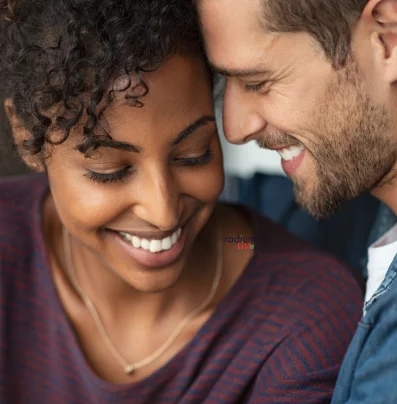6 Different Types of Relationships in Everyday Life
Relationships are a big part of life, connecting us with others in various ways. Whether it’s with family, friends, or even coworkers, these connections can shape our experiences and well-being. Let’s dive into some common types of relationships we encounter daily:
6 Different Types of Relationships in Everyday Life
Family Relationships
Family relationships are the connections we have with our relatives, including parents, siblings, and extended family members like grandparents, aunts, and uncles. These bonds are incredibly important because they’re often the first relationships we form and shape who we are. They’re built on a foundation of love, care, and shared experiences.
Even in the greatest of circumstances, family ties can be incredibly uplifting and comforting. We have lifelong memories made with them, and we celebrate holidays and enjoy meals together. Our family supports us through all of life’s journeys, from early adventures to significant adult life events.
Family ties aren’t always simple, though. They may also bring difficulties and disputes. It comes with disagreements, miscommunications, and divergent viewpoints. These disputes can occasionally strain bonds and create friction within the family. Family members’ distinct personalities, passions, and methods of doing things are normal and might occasionally clash.
Family relationships are worthwhile to protect and invest in, despite the difficulties. They bring us an unmatched feeling of support and belonging. Our family is there to support us, take us up when we fall, and let us know that we’re never alone—through good times and bad. The true meaning of life is found in the love and bonds we have with our family.
Friendships
Friendships are like priceless gifts we make in life. They are the connections we make with individuals that feel equally close to us even though they are not related to us. These unique friendships are built on similar interests, trust, and support.
We go to our friends for guidance, a sympathetic ear, or a good chuckle. They have an understanding of us that occasionally even our family members lack. Friends are there at every turn, whether it’s to celebrate successes or get through difficult times.
The basis of any friendship is trust. We confide in our friends because we know they will protect our secrets and provide us with frank advice when we need it. Because of this trust, we may fully express who we are without worrying about being judged.
Another important component of friendship is support. When we’re feeling low, friends cheer us up with their supportive words and deeds. They act as our supporters and never give up on us, even when we start to doubt ourselves.
Friendships are forged by mutual interests, which serve as a point of connection. Shared passions, such as a love of sports, music, or hobbies, form relationships that deepen with time.
Our constant companions are our friends, in good times and bad. They offer us consolation and comfort in trying times and truly rejoice with us when we succeed. Our lives are greatly enhanced by friendships, which serve as a constant reminder that we are not alone in this path.
Acquaintances

All of the people we see on a daily basis—neighbors we greet with a wave, coworkers we walk past in the hallway, or other students we nod to in the hallways—are considered acquaintances. Despite the fact that we may not know them well, our frequent interactions have given us a certain familiarity.
Often, these relationships begin with a brief greeting or casual conversation. We might discover more about one another’s lives over time, including our jobs, interests, and pastimes. Even though these connections are informal, they contribute to our social fabric and give our everyday activities a feeling of community.
Even if they may not be our closest confidants, acquaintances nevertheless play a vital role in our lives. They serve to remind us that we are a part of a wider community and to give us a sense of connection and belonging to the world around us. These exchanges, whether they be kind smiles exchanged in passing or quick chats, add to our sense of wellbeing in general.
Friends provide a sense of support and companionship even though we might not divulge our darkest secrets to them. Friends can brighten and enhance our days by providing a helping hand when required or words of encouragement.
All things considered, even though we may not turn to acquaintances during difficult times, they nevertheless significantly improve our lives. They serve as a reminder that despite the chaos of everyday existence, we are surrounded by kind faces and smiling faces.
Romantic Relationships
Romantic relationships are like a rollercoaster ride of emotions, filled with love, attraction, and all the feels. They’re the butterflies in your stomach, the stolen glances across the room, and the warmth of being in someone’s arms. In these relationships, you’re not just partners, you’re best friends and soulmates. You share your hopes, dreams, and fears, knowing that this person accepts you for who you are, flaws and all. They make you feel like you’re the most important person in the world, and you do the same for them.
But it’s not all sunshine and rainbows. Romantic relationships require work, plain and simple. Communication is key—talking about your feelings, your needs, and your concerns helps keep the bond strong. It’s about being open and honest with each other, even when it’s tough.

Compromise is another big part of romantic relationships. It’s about finding common ground and making decisions together, even if it means giving up something you want for the sake of the relationship. It’s about being willing to meet halfway and find solutions that work for both of you. And let’s not forget about effort. Both sides must put out effort to keep the spark alive. It’s about showing appreciation, making time for each other, and never taking the other person for granted. It’s the little things—like leaving love notes or planning surprise dates—that keep the romance alive.
So yes, romantic relationships can be a whirlwind of emotions, but they’re also incredibly rewarding. They bring excitement, joy, and companionship, making life feel richer and more meaningful. And with a little bit of communication, compromise, and effort, they can stand the test of time.

Work Relationships
Our bonds with our colleagues and managers, with whom we spend the majority of our working hours, are called work relationships. They are all about the job at first, working together on projects, keeping deadlines, and forming a team to accomplish shared objectives. However, these relationships may develop into something more in the future.
Friendships often develop between colleagues who are more than just coworkers. A friendship that transcends the confines of the office is formed by sharing the highs and lows of the workday. You congratulate one another on accomplishments, offer support when faced with obstacles, and perhaps even get a drink to relax after work. These connections provide the office a sense of community and support that makes it seem more like a second home.
But it’s not just about friendships—work relationships can also blossom into mentorships. A boss or senior colleague can become a valuable guide and mentor, offering advice, wisdom, and support as you navigate your career path. They may take you under their wing, share their knowledge and experience, and help you grow both personally and professionally.
Regardless of whether they turn into friendships or mentorships, work relationships are an important part of our lives. They provide a sense of belonging and connection in the workplace, making it a more enjoyable and fulfilling environment. So next time you’re at work, take a moment to appreciate the relationships you’ve formed—they may just be the key to your success and happiness.
Situational Relationships
Situational Relationships are similar to brief, transient moments of connection that are frequently brought on by particular events or circumstances. While attending a workshop on a subject you both find interesting or while standing in line at the grocery store, you might start a discussion with someone. Despite their briefness, these exchanges have the power to make an impression.
These are the times when you find yourself laughing together, conversing briefly, or perhaps becoming closer over a common experience. Even if it is only for a brief period of time, there is a sense of unity and connection. You might pick up a new skill from the other person or see a subject you both have a strong interest in from a different angle.

However, these relationships also disappear just as fast as they arise. The connection ends when the event or circumstance that brought you together does. It’s possible you won’t see or even recall that person’s name. And that’s alright, too; it’s all a natural part of life’s tides.
Situational Relationships have a function even though they might not be as deep or long-lasting as other kinds of partnerships. They serve as a gentle reminder of our common humanity and the wonders of making connections with people, even if they are fleeting. Thus, the next time you find yourself chatting with a stranger, seize the opportunity and follow the conversation to see what can emerge.
